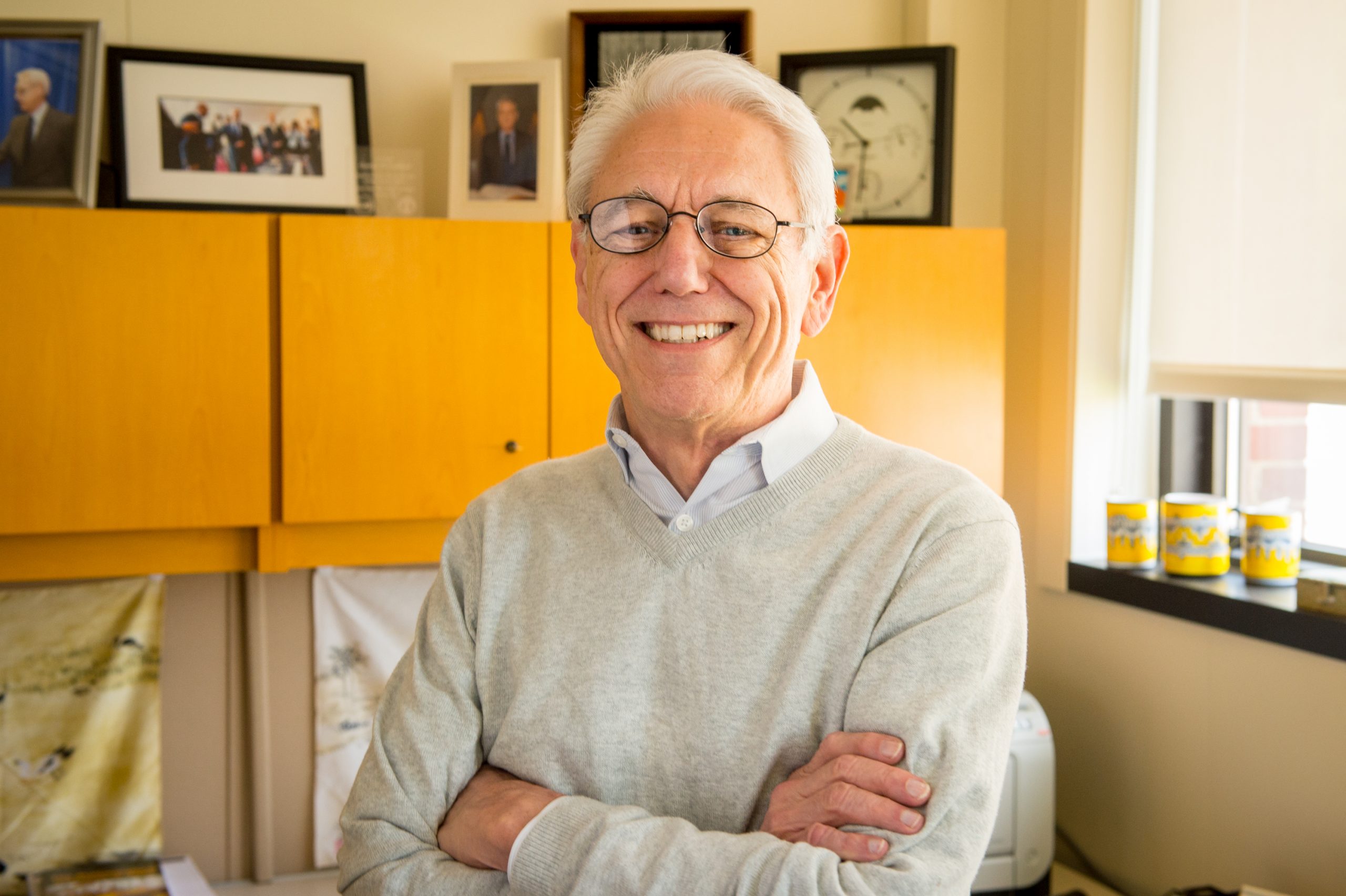
The prestigious award recognizes the importance of transforming energy systems from fossil fuels to carbon-free technologies.
Physicist George Crabtree of the U.S. Department of Energy’s (DOE) Argonne National Laboratory has received the 2022 Energy Systems Award from the American Institute of Aeronautics and Astronautics (AIAA). The award, which was established in 1981, recognizes Crabtree’s work on developing next-generation energy systems that transition from fossil fuels to carbon-free technologies. Defining new energy systems and establishing pathways to achieve them are critical for mitigating the effects of climate change, the consequences of which are already being felt by 85% of the world’s population.
“This award adds important momentum for transforming the energy sources we use,” said Crabtree. “I’m glad to see the professional world is recognizing that.”
As director of the Joint Center for Energy Storage Research (JCESR), headquartered at Argonne, Crabtree and his colleagues aim to discover and design next-generation batteries. Such batteries are needed to decarbonize heavy-duty transportation, like long-haul trucks, marine shipping, and aviation, enable a renewable electricity grid, and decarbonize heavy industry. But his work on defining a next-generation energy system goes far beyond batteries. “It isn’t so much about one energy innovation, it’s about putting together many innovations to transform the energy system,” he said.
“This award adds important momentum for transforming the energy sources we use.” — JCESR Director George Crabtree
As JCESR nears the end of its 10-year contract, Crabtree is shifting focus to make the center’s accomplishments readily available and easily understood by government entities, the research community, Congress and members of the public.
The 2022 Energy Systems Award was presented during the AIAA SciTech 2022 meeting in San Diego, California. Crabtree could not attend in person due to COVID-19 restrictions but received the award remotely on January 5. Previously, he received the prestigious Kammerlingh Onnes Prize and the DOE’s Award for Outstanding Scientific Accomplishment in Solid State Physics four times. Crabtree is a fellow of the American Physical Society, a member of the U.S. National Academy of Sciences and a fellow of the American Academy of Arts and Sciences.
This article was authored by Nikki Forrester and first published by Argonne National Laboratory.
The Joint Center for Energy Storage Research (JCESR), a DOE Energy Innovation Hub, is a major partnership that integrates researchers from many disciplines to overcome critical scientific and technical barriers and create new breakthrough energy storage technology. Led by the U.S. Department of Energy’s Argonne National Laboratory, partners include national leaders in science and engineering from academia, the private sector, and national laboratories. Their combined expertise spans the full range of the technology-development pipeline from basic research to prototype development to product engineering to market delivery.
Argonne National Laboratory seeks solutions to pressing national problems in science and technology. The nation’s first national laboratory, Argonne conducts leading-edge basic and applied scientific research in virtually every scientific discipline. Argonne researchers work closely with researchers from hundreds of companies, universities, and federal, state and municipal agencies to help them solve their specific problems, advance America’s scientific leadership and prepare the nation for a better future. With employees from more than 60 nations, Argonne is managed by UChicago Argonne, LLC for the U.S. Department of Energy’s Office of Science.
The U.S. Department of Energy’s Office of Science is the single largest supporter of basic research in the physical sciences in the United States and is working to address some of the most pressing challenges of our time. For more information, visit https://energy.gov/science.

